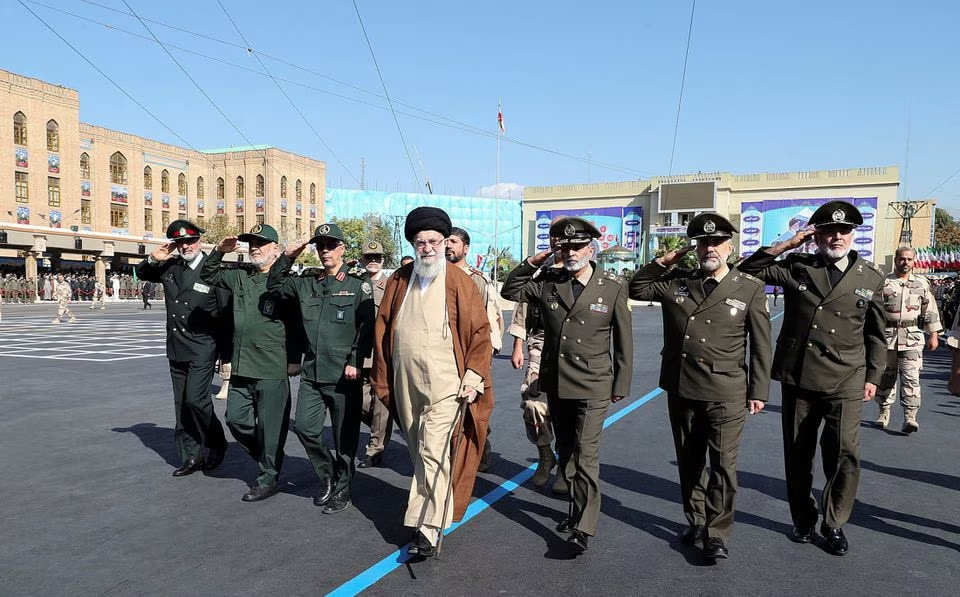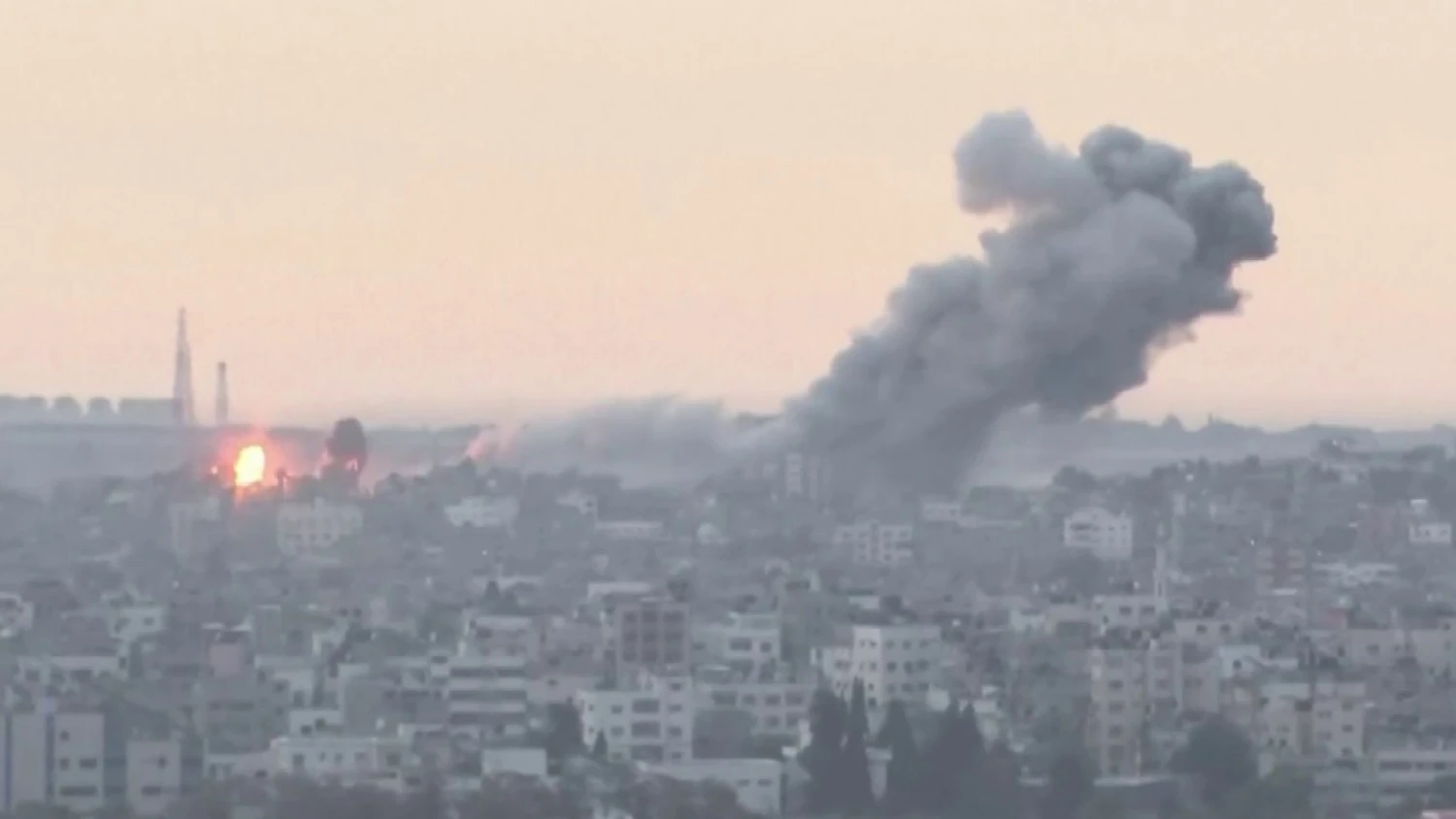Iran Denies Involvement In Hamas Attack On Israel, Ayatollah Ali Khamenei Says
Iran denies involvement in Hamas attack on Israel as Ayatollah Ali Khamenei, Iran's top authority, has categorically denied any involvement by Tehran in the recent militant Hamas group's attack on Israel.
Author:Suleman ShahReviewer:Han JuOct 11, 202394.2K Shares1.4M Views

Iran denies involvement in Hamas attack on Israelas Ayatollah Ali Khamenei, Iran's top authority, has categorically denied any involvement by Tehran in the recent militant Hamas group's attack on Israel.
In a televised speech, he expressed his sentiments while simultaneously acknowledging what he termed as Israel's "irreparable" military and intelligence defeat.
This declaration comes amid ongoing tensions in the region and growing accusations against Iran for supporting militant groups.
Khamenei's Statement
During his first televised address since the Hamas attack on Israel, Ayatollah Ali Khamenei publicly disassociated Iran from any role in the assault. He even went as far as to express support for those behind the attack.
“„We kiss the hands of those who planned the attack on the Zionist regime.- Ayatollah Ali Khamenei, Iran's top authority
Khamenei, donning a Palestinian scarf, emphasized that the damage inflicted upon Israel was a consequence of its own actions, describing the attack as a "destructive earthquake" with lasting consequences.
The Accusations Against Iran
Israel has long accused Iran's clerical rulers of exacerbating violence by providing arms and support to Hamas.
Tehran, which does not recognize Israel as a state, has acknowledged offering moral and financial assistance to the group, which exercises control over the Gaza Strip.
Backing the Palestinian cause has been a central pillar of Iran's foreign policy since the 1979 revolution, positioning the Shi'ite-dominated nation as a leader in the Muslim world.
The United States, on the other hand, has taken a different stance. The U.S. government stated on Monday that Iran was complicit in Hamas' assault on Israel.
However, they also clarified that they had no intelligence or evidence supporting this assertion.
The top U.S. general issued a warning to Iran, urging it not to escalate the crisis, with a clear intent to prevent further widening of the conflict.
Israel's Response
Meanwhile, Israel has been actively working to regain control of the Gaza border. They have taken measures to repair the barrier that was breached during the weekend assault by militants.
Additionally, Israeli forces have continued relentless air raids on the Gaza Strip in response to the attacks.
Ayatollah Ali Khamenei cautioned that an attack on Gaza would unleash even more significant anger in the region.
He noted that portraying themselves as victims in an attempt to justify their actions would be a misguided strategy for Israel, likely leading to more significant disasters.
Humanitarian Impact
As the situation unfolds, the humanitarian impact of the conflict is becoming increasingly apparent.
Israeli television channels reported a rising death toll from the Hamas attack, with hundreds killed and thousands injured.
The Gaza HealthMinistry also reported a substantial number of casualties resulting from Israeli air strikes on the blockaded enclave since the start of the crisis.
In the midst of escalating tensions and contrasting claims, the region remains on edge, with the international community closely monitoring the situation.
Final Thoughts
Ayatollah Ali Khamenei's denial of Iran's involvement in the recent Hamas attack on Israel adds another layer of complexity to the ongoing tensions in the region.
Amid growing accusations against Iran, Khamenei's statement emphasizes Iran's stance on the Palestinian cause and its disassociation from the assault.
Meanwhile, the international community is closely watching the situation as Israel seeks to regain control of the Gaza border, and casualties continue to mount on both sides, underlining the humanitarian impact of the conflict.
The region remains on edge, with uncertainties surrounding the evolving crisis.

Suleman Shah
Author
Suleman Shah is a researcher and freelance writer. As a researcher, he has worked with MNS University of Agriculture, Multan (Pakistan) and Texas A & M University (USA). He regularly writes science articles and blogs for science news website immersse.com and open access publishers OA Publishing London and Scientific Times. He loves to keep himself updated on scientific developments and convert these developments into everyday language to update the readers about the developments in the scientific era. His primary research focus is Plant sciences, and he contributed to this field by publishing his research in scientific journals and presenting his work at many Conferences.
Shah graduated from the University of Agriculture Faisalabad (Pakistan) and started his professional carrier with Jaffer Agro Services and later with the Agriculture Department of the Government of Pakistan. His research interest compelled and attracted him to proceed with his carrier in Plant sciences research. So, he started his Ph.D. in Soil Science at MNS University of Agriculture Multan (Pakistan). Later, he started working as a visiting scholar with Texas A&M University (USA).
Shah’s experience with big Open Excess publishers like Springers, Frontiers, MDPI, etc., testified to his belief in Open Access as a barrier-removing mechanism between researchers and the readers of their research. Shah believes that Open Access is revolutionizing the publication process and benefitting research in all fields.

Han Ju
Reviewer
Hello! I'm Han Ju, the heart behind World Wide Journals. My life is a unique tapestry woven from the threads of news, spirituality, and science, enriched by melodies from my guitar. Raised amidst tales of the ancient and the arcane, I developed a keen eye for the stories that truly matter. Through my work, I seek to bridge the seen with the unseen, marrying the rigor of science with the depth of spirituality.
Each article at World Wide Journals is a piece of this ongoing quest, blending analysis with personal reflection. Whether exploring quantum frontiers or strumming chords under the stars, my aim is to inspire and provoke thought, inviting you into a world where every discovery is a note in the grand symphony of existence.
Welcome aboard this journey of insight and exploration, where curiosity leads and music guides.
Latest Articles
Popular Articles
